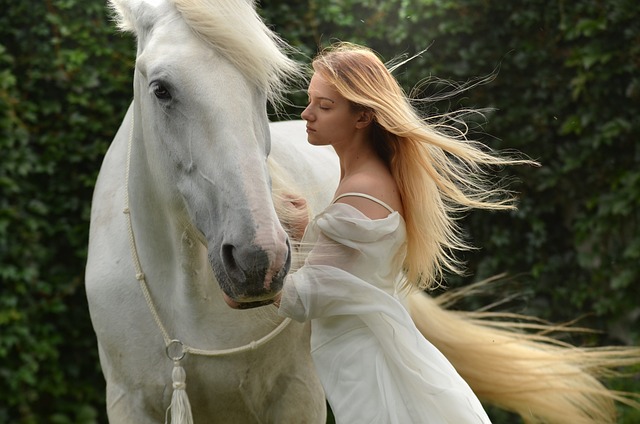Spis Treści
Can Horses Feel Anger?
When it comes to understanding the emotions of animals, horses are often a subject of curiosity. Many horse owners and enthusiasts wonder if these majestic creatures can experience anger. In this article, we will delve into the fascinating world of equine emotions and explore whether horses can indeed feel anger.
Understanding Horse Emotions
Before we can determine whether horses can feel anger, it is important to have a basic understanding of their emotional range. Like humans and many other animals, horses experience a wide range of emotions, including happiness, fear, sadness, and even frustration. These emotions are an integral part of their behavioral repertoire and play a crucial role in their interactions with both humans and other horses.
Defining Anger in Horses
Anger is a complex emotion that involves feelings of displeasure, frustration, and aggression. While it is relatively easy to recognize anger in humans, identifying it in horses can be more challenging due to their unique ways of expressing emotions. Horses may exhibit certain behaviors that are commonly associated with anger, but it is essential to consider other factors that may contribute to these behaviors.
Behavioral Indicators of Anger in Horses
When trying to determine if a horse is experiencing anger, it is crucial to look for specific behavioral indicators. While these behaviors may not always indicate anger, they can provide valuable insights into the horse’s emotional state. Some common behavioral indicators of potential anger in horses include:
- Aggressive postures, such as pinned ears, bared teeth, or raised tail
- Uncharacteristic aggression towards humans or other horses
- Excessive tail swishing or stomping
- Intense and prolonged staring
- Restlessness and pacing
- Refusal to obey commands or perform tasks
Factors Influencing Horse Behavior
While the aforementioned behaviors may indicate anger in horses, it is important to consider other factors that can influence their behavior. Horses are highly sensitive animals, and their reactions can be influenced by various external and internal factors, including:
- Pain or discomfort
- Fear or anxiety
- Environmental stressors
- Poor training or handling techniques
- Health issues
It is crucial to rule out these factors before attributing a horse’s behavior solely to anger. Consulting with a veterinarian or an experienced equine behaviorist can help identify any underlying issues that may be contributing to the horse’s behavior.
The Limitations of Equine Emotional Studies
While there is a growing body of research on equine emotions, it is important to acknowledge the limitations of these studies. Understanding and interpreting animal emotions is a complex task, as it often relies on subjective observations and interpretations. Additionally, horses, like any other animals, may experience emotions differently from humans, making it challenging to draw direct comparisons.
Alternative Explanations for Behaviors
When observing behaviors that may indicate anger in horses, it is essential to consider alternative explanations. Some behaviors that are commonly associated with anger can also be attributed to other emotions or natural instincts. For example:
- Aggressive postures may be a sign of fear or defensiveness
- Uncharacteristic aggression could be a response to pain or discomfort
- Excessive tail swishing or stomping may indicate irritation or annoyance
- Intense staring might be a result of curiosity or heightened alertness
- Restlessness and pacing can be a response to boredom or confinement
- Refusal to obey commands may stem from confusion or lack of training
Considering these alternative explanations is crucial to avoid misinterpreting a horse’s behavior as anger when it may be driven by other factors.
Conclusion
While horses are undoubtedly capable of experiencing a wide range of emotions, determining whether they can feel anger specifically remains a complex task. While certain behaviors may indicate anger, it is important to consider other factors that can influence a horse’s behavior. Understanding the limitations of equine emotional studies and considering alternative explanations for behaviors are crucial steps in accurately interpreting a horse’s emotional state. If you have concerns about your horse’s behavior, consulting with a veterinarian or an equine behaviorist can provide valuable insights and guidance.


















